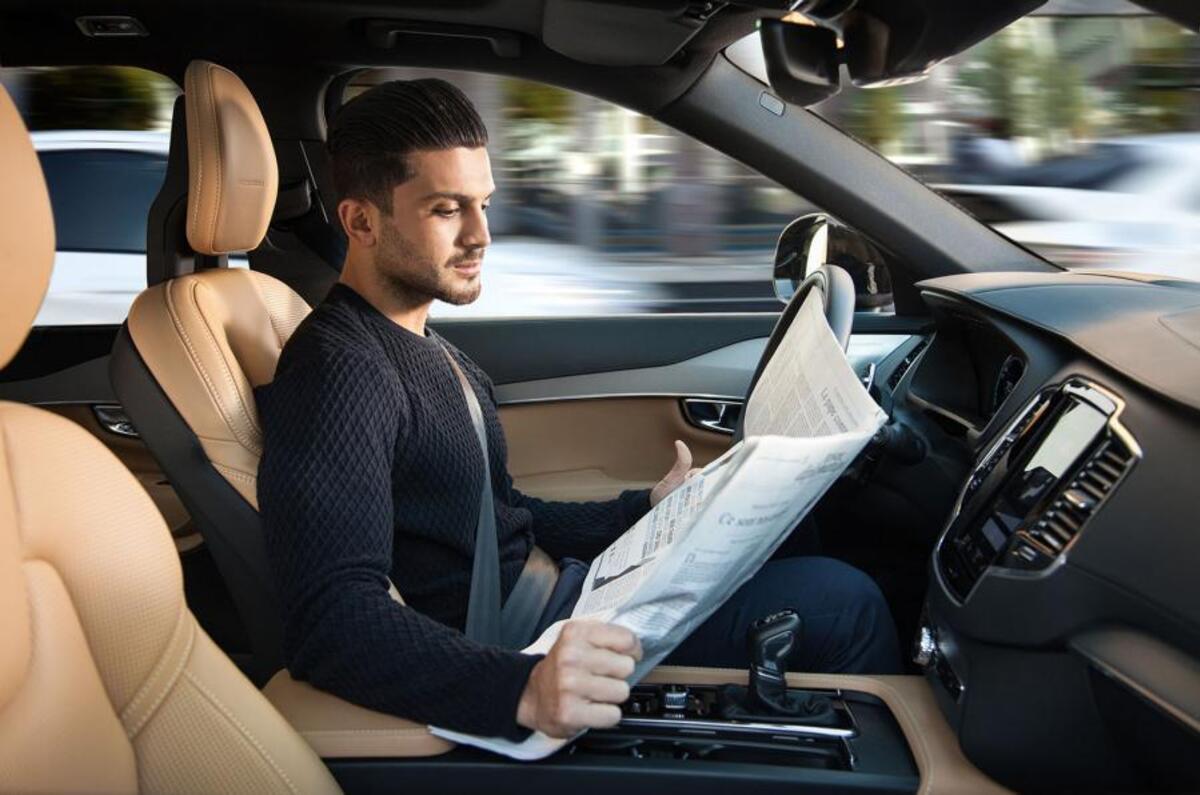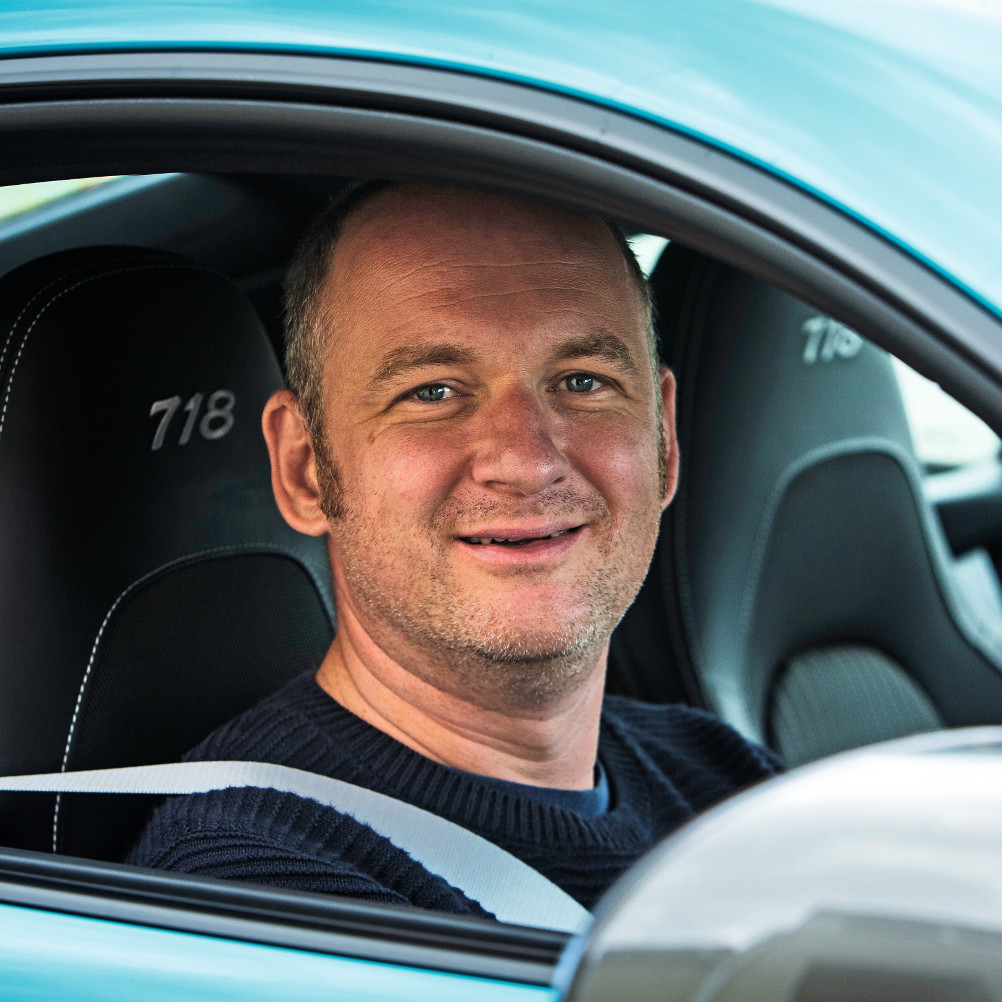Could 2021 be the year of the driverless car? Just a few weeks ago, the snappily named Xpeng P7 Super Long Range Premium hit the road with autonomous tech that was billed as some of the most advanced ever to grace a production car. And, of course, this is the year that Ford planned to have its driverless taxi fleet up and running, while Google’s automotive offshoot, Waymo, predicted it’d have around 100,000 self-driving cars on the road by now. And yet…
The truth is we seem to be further away from a driverless reality than ever. Now, obviously, the Covid pandemic has hobbled all areas of the industry, with Ford claiming this is the reason its automated ride-hailing service has been postponed. Confidence has been further eroded by Uber’s sale of its self-driving division earlier this year for half its value. And Waymo? Well, it does have an operational autonomous fleet, but it currently numbers just 600 vehicles or so.
However, could there be a fundamental flaw at the heart of autonomy that has nothing to do with technology, investment or pandemics? Could the biggest hurdle to success actually be the very thing that driverless cars are trying to eliminate: you and me?
How so? Well, for most observers and experts, the accepted view of the medium-term future of this technology is that self-driving machines should still be capable of manual override, such as when the road ahead gets interesting and you want to get involved or, less likely maybe, when the technology fails and requires help.
It’s this last scenario that could prove the most challenging because, let’s face it, the better the tech gets, the less we’ll drive, which means when the car does have a high-tech hiccup, we’re likely to be somewhat unprepared. As far back as 1983, esteemed psychologist Lisanne Bainbridge had written a study that shone a light on the potential pitfalls of relying on heavily automated systems. In short, she concluded that the more we rely on the tech, the worse we become at the task it’s assisting us with.
In the case of cars, most industry insiders reckon a worst-case scenario for a failure that requires intervention from the driver would be classed as a once-in-every-200,000-miles-or-so event. Sounds impressive, doesn’t it? I mean, if you were told you wouldn’t experience any sort of breakdown for at least 200,000 miles, you would be overjoyed. Until you realise that you could have changed cars three or four times in that period and probably won't have actually ‘driven’ for maybe five years. And now the black box wants you to take over, more than likely in a car whose controls you’re totally unfamiliar with. That’s a fairly sobering thought.
It’s not just that you’ll be out of practice, because there’s also the small matter of reaction times. Simulations have shown that once the driver is occupied with something else, it takes around 40 seconds from the moment the car requests they take over to the point at which they’ve fully got a handle on their surroundings and what’s required. Imagine how far you’d have travelled in that time at 70mph.







Join the debate
Add your comment
It is going to be a few generations before anyone totally trusts an automated car, and who for example dare sit around the dining table in the camper van, when it is driving, rather than behind the wheel, ready to intervene. Who really trusts anything that is computer based? Has anyone ever bought a computer/smartphone etc. and had it for 5 years, and can say that in all that time it never went wrong at all? No blue screens, no freezing, no crashing, no slow to boot up etc. etc.
Has no one ever set an oven-timer/wireless central heating controller etc. and come home to find that the oven is still cold, the food is still raw, and the house is freezing cold?
Does anyone trust the toaster than can sense whether the bread is frozen or not? Does anyone use the oven function where you tell it what is being cooked, the weight of the food, and how you like it cooked and trust it to come out perfectly?
How often have you heard those words: "You have arrived at your destination. Your route guidance is complete"; and you think - like F... we have!
Do we really get worse at simple tasks that we have been trained to do but don't do very often? Once you can ride a bike, you can ride it, even if you don't do it every day, week, month or even year.
I think it's useful to remember what the "levels" stand for: 1- hands on. 2- hands off. 3- eyes off. 4- mind off. 5- steering wheel optional.
As long as there is a potential need for a licensed driver to take over within a matter of seconds in case of emergency, you are in a Level 3 scenario and I would say that, from a legal and third party liability perspective, we are still talking about driver aids as opposed to autonomous driving; I can read the paper or watch a video instead of driving but it won't transform my life and I am still liable for accidents. Level 4 means that I can lie down and sleep in the car while it drives me, instead of me driving all night, knowing that the car can park itself safely in case it needs me to wake up and take over. Level 5 means that the car can go pick up the kids in school, drive them home and then park itself while I am at work. Both of these are truly transformational but the issue of who would pay in case of an accident is still the major stumbling block IMHO.
No matter how you say it, could you, after say ten years of driving yourself, that you could sit there and open a Book, read the News of a Tablet, or indeed, recline the seat, at Night?, doesn't you anxiety kick in?, I find it hard to believe people would do it, feel safe, what about the unexpected?, the unavoidable accident?, I think the notion of never having to drive again, even while sitting in a car, Bus, Truck etc isn't go8ng to happen for a long while yet.
No matter how much funding is being wasted worldwide the answer is and has always been that driverless vehicles will only work in a controlled environment. The roads are not, and will never be a controlled environment.